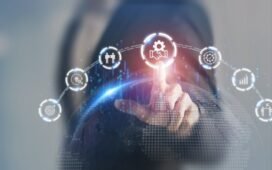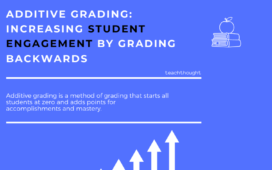
AI and Machine Learning In Education: Personalization, Support, And Ethics
Imagine stepping into a classroom ten years from now. The air hums with quiet energy, and students sit engrossed in their lessons, each interacting with personalized learning tools that adjust to their individual needs. This scene isn’t just a glimpse into science fiction—it’s a potential future shaped by the rapid advancements of Artificial Intelligence (AI) and Machine Learning in education.
In recent decades, technology has transformed how we teach and learn. From the days of chalkboards to digital whiteboards, classrooms have evolved alongside computers and the internet. Now, AI is poised to usher in a new era of education where personalized learning experiences are not just a luxury but a standard.
The Evolution Of Educational Technology
Education has always been at the forefront of technological innovation. Decades ago, the introduction of computers revolutionized how information was accessed and shared in classrooms. Today, online platforms offer courses from universities worldwide, accessible to anyone with an internet connection. These advancements paved the way for AI and Machine Learning to make their mark. Unlike traditional software, which follows predefined instructions, AI learns from data. It adapts and improves its responses over time, mimicking human intelligence but with unprecedented speed and accuracy.
AI And Machine Learning: The Game Changers
AI isn’t just a buzzword; it’s a technology that’s already reshaping education in profound ways. Imagine a student using an online learning platform that adjusts its lessons based on how well the student understands the material. This adaptive learning software uses algorithms to analyze a student’s progress and tailor future lessons to address their strengths and weaknesses. In classrooms, AI-powered tutoring systems act as virtual teachers, providing personalized support to students. These systems can identify where a student is struggling and offer additional explanations or exercises to reinforce learning. For educators, AI streamlines administrative tasks, such as grading assignments and managing student records, freeing up time for more personalized interactions with students.
Benefits Of AI And Machine Learning In Education
Personalized Learning
One of the most significant benefits of AI and Machine Learning in education is their ability to personalize learning experiences. No two students learn exactly alike, yet traditional classrooms often teach with a one-size-fits-all approach. AI changes this by adapting content and pacing to match each student’s learning style and pace. Imagine a math lesson where each student receives practice problems tailored to their current level of understanding. If a student grasps a concept quickly, AI can provide more challenging problems to keep them engaged. Conversely, if a student struggles with a concept, AI can offer additional explanations and simpler problems until they master the material.
This personalized approach not only increases engagement but also improves learning outcomes. Students feel more motivated when they see their progress in real time and receive immediate feedback on their work. For educators, AI provides valuable insights into each student’s learning journey, enabling targeted interventions to support struggling students and challenge high achievers.
AI In Assessment And Evaluation
AI plays a crucial role in transforming how assessments and evaluations are conducted in education. Traditionally, grading assignments and exams has been a time-consuming task for teachers. With AI, automated grading systems can analyze and evaluate student responses quickly and accurately. This not only saves teachers time but also provides students with faster feedback on their work. Formative assessments, which track student progress throughout a course, benefit greatly from AI. By continuously analyzing student performance data, AI can identify areas where students are struggling and intervene with additional support. This real-time feedback helps teachers adjust their teaching strategies to better meet the needs of their students, ensuring that no one gets left behind.
However, it’s important to consider the limitations of AI in assessment. While AI excels at grading objective tasks like multiple-choice questions, it may struggle with subjective assessments that require human judgment, such as essays or creative projects. Maintaining a balance between AI-driven assessments and human evaluation ensures that students receive fair and comprehensive feedback.
Enhancing Teacher Capabilities
Contrary to fears of AI replacing teachers, its true potential lies in enhancing their capabilities. AI serves as a valuable assistant to educators, helping them manage administrative tasks and providing personalized support to students. In lesson planning, AI-powered tools can suggest teaching materials and resources tailored to specific learning objectives. These tools analyze vast amounts of educational content and recommend the most relevant and effective resources for teachers to use in their classrooms. For classroom management, AI offers solutions that streamline routine tasks, such as taking attendance or organizing schedules. This automation allows teachers to focus more on teaching and interacting with students, fostering a more engaging and productive learning environment.
Professional development is another area where AI proves beneficial to teachers. AI-driven platforms offer personalized training programs based on each teacher’s strengths and areas for improvement. These programs can include modules on new teaching methods, educational trends, and technology integration, empowering teachers to continuously enhance their skills and adapt to changing educational landscapes.
While AI supports teachers in many aspects of their work, it’s essential to recognize the irreplaceable role of human educators. Teachers provide emotional support, encouragement, and mentorship to students—qualities that AI cannot replicate. By leveraging AI as a tool rather than a replacement, educators can maximize their impact in the classroom and nurture students’ critical thinking and social-emotional skills.
AI-Powered Future Learning Environments
Looking ahead, AI holds promise for creating more dynamic and immersive learning environments. Virtual and Augmented Reality technologies, powered by AI algorithms, offer students opportunities to explore complex concepts through simulations and virtual field trips. These experiences make learning more interactive and engaging, bridging the gap between theory and real-world application.
Gamification is another area where AI enhances learning experiences. By incorporating game-like elements such as challenges, rewards, and competitions into educational activities, AI motivates students to actively participate and collaborate. Games designed with AI algorithms can adapt difficulty levels based on students’ performance, ensuring that learning remains challenging yet achievable.
Collaborative learning platforms supported by AI facilitate peer-to-peer interaction and group projects. AI algorithms analyze students’ strengths and preferences to form balanced teams, promoting effective communication and teamwork skills. These platforms encourage collaborative problem-solving and knowledge sharing among students, preparing them for future careers that require teamwork and collaboration.
Ethical And Societal Implications
As AI and Machine Learning become more integrated into education, it raises important ethical and societal considerations. One concern is bias in AI algorithms, which may unintentionally reflect societal biases in areas such as race, gender, or socioeconomic status. Addressing bias requires ongoing scrutiny and refinement of AI algorithms to ensure fairness and equity in educational outcomes.
Data security is another critical issue. AI systems rely on vast amounts of student data to personalize learning experiences and assessments. Protecting this data from unauthorized access and misuse is paramount to maintaining trust and safeguarding student privacy. Educators and policymakers must implement robust data protection measures and adhere to ethical guidelines when collecting and utilizing student data.
The role of policymakers is crucial in shaping the responsible integration of AI in education. Regulations and guidelines should be developed to govern the use of AI in classrooms, ensuring transparency, accountability, and ethical use of AI technologies. Collaboration between educators, technologists, policymakers, and stakeholders is essential to establish best practices and mitigate potential risks associated with AI in education.
The Road Ahead
The future of learning is being shaped by AI and Machine Learning technologies that offer unprecedented opportunities to personalize education, enhance teaching capabilities, and create dynamic learning environments. While AI presents immense potential to transform education for the better, it also poses challenges that must be addressed thoughtfully and ethically.
As we look to the future, it is essential to strike a balance between harnessing the benefits of AI and safeguarding against potential risks. By leveraging AI as a tool to support educators, personalize learning experiences, and foster collaborative and inclusive learning environments, we can empower students to thrive in an increasingly digital and interconnected world.
In navigating this journey, educators, policymakers, and stakeholders must work together to ensure that AI in education is implemented responsibly, ethically, and with the best interests of students at heart. By doing so, we can pave the way for a future where every student has access to personalized, high-quality education that prepares them for success in the 21st century and beyond.
Future Trends
As AI algorithms continue to advance, the future of education holds exciting possibilities. Emerging technologies such as Natural Language Processing (NLP) and predictive analytics are poised to further enhance personalized learning experiences. Imagine AI-powered virtual assistants that can converse with students in natural language; they would provide instant tutoring and guidance tailored to individual needs. Additionally, predictive analytics can anticipate students’ learning gaps and proactively suggest interventions, ensuring timely support and maximizing learning outcomes.
Global Impact
AI has the potential to democratize education on a global scale. In regions with limited access to qualified teachers or educational resources, AI-powered platforms can provide personalized learning experiences that adapt to local contexts and languages. This accessibility empowers students worldwide to access high-quality education, regardless of their geographical location or socioeconomic background. By bridging educational gaps and fostering lifelong learning opportunities, AI contributes to a more equitable and inclusive global society.
Conclusion
In conclusion, the integration of AI and Machine Learning into education represents a transformative shift toward personalized, adaptive, and inclusive learning environments. From personalized tutoring systems to immersive Virtual Reality experiences, AI technologies are reshaping how students learn, teachers teach, and educational outcomes are measured.
While AI offers unprecedented opportunities to enhance education, it is crucial to navigate its implementation thoughtfully and responsibly. Addressing ethical considerations such as bias in algorithms and data privacy concerns ensures that AI benefits all students equitably. Moreover, fostering collaboration among educators, policymakers, and technologists is essential to establishing guidelines. Additionally, coming up with best practices can help uphold ethical standards and maximize the positive impact of AI in education.
In this journey towards an AI-enhanced education system, continuous dialogue, research, and adaptation will be key. Together, we can shape a future where education is not only accessible and personalized but also transformative and empowering for generations to come.















